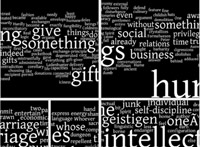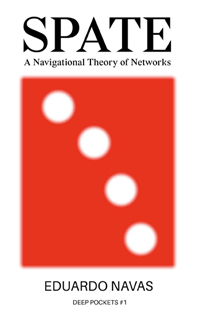Busy weekend: Kindle and Facebook beatings, by Dan Farber

Image source: scifi.com
Text source:Â ZDnet
Published: November 25th, 2007
Robert Scoble spent the last week giving his new Amazon Kindle ebook reader a test drive, reading a couple of books and declaring the progeny of Jeff Bezos a failure. He thinks the usability and user interface suck and it lack features such as a touch screen, social networking and the capability to send electronic goods to others. He wants version 3.0 of the device.
David Pogue of the New York Times is far kinder to the Kindle.
So if the Kindle isn’t a home run, it’s at least an exciting triple. It gets the important things right: the reading experience, the ruggedness, the super-simple software setup. And that wireless instant download — wow.
Even though most people will prefer the feel, the cost and the simplicity of a paper book, the Kindle is by far the most successful stab yet at taking reading material into the digital age.
No, it’s not the last word in book reading. But once its price comes down and its design gets sleeker, the Kindle may be the beginning of a great new chapter.
David Carnoy of CNET rated the Kindle of 7.5 out of 10, concluding that it “holds a distinct advantage over Sony’s Reader and is a promising evolution of the electronic book–but Amazon needs to bring down the pricing for both the device and the content to attract a wider audience.â€
I haven’t played with one yet, but I am getting the idea that the Kindle does not pass the Steve Jobs smell test. It’s closer to a Newton than the iPod, but that doesn’t mean that Bezos won’t continue to improve the device, just as Microsoft is trying to turn the Zune into a winner. And, Amazon has the advantage, over Sony’s Reader and Apple if it jumps into the ebook space, in having millions of book customers who are deeply tied into its service.
Facebook, and others, who traffic in user data, also received some advice and some harsh words this weekend. Dave Winer and Doc Searls led the charge of the elders with constructive criticism, echoing Sir Tim Berners-Lee’s “Giant Global Graph,†which echoes the free the social graph movement led by people such as Brad Fitzpatrick, David Recordon, Marc Canter and Steve Gillmor.
Dave laid out the issue in simple terms:
There are thorny issues here, but we want these companies to give up control of our information, and we don’t want them to be overly scared of public opinion as they do it.
And this is hardly the most important giving up of control. Most important, I want them to give me control of my data.
So before we overly politicize the leading edge of technology, let’s get together on what actually does and doesn’t serve the user’s interest.
I want Netflix and Yahoo to give me an XML version of my movie ratings, for me to decide what to do with. I’ve been asking for this for a couple of years, I still don’t have it. This is information I created. I want to keep a copy. I want to make sure that Netflix knows about all my Yahoo ratings and vice versa. I’d like to give a copy to Facebook (assuming they agree to not disclose it) and maybe to Amazon, so they can recommend products I might want to purchase (again keeping it to themselves). I want to begin a negotiation with various vendors, where I give them something of value, and they give me back something of value.
The eloquent Doc wrote:
For too long we’ve lived with “relationship management†that’s asymmetrical and one-way. Creating the grounds for symmetrical relationships cannot be the job of Facebook, Google, Microsoft or any big company. They can’t do it, and they won’t. We can’t petition those lords with prayer, blogs, or anything else. (Well, we can, but it won’t be enough.)
We need to create our own new rules — ones that protect our privacy while making us better members of the social and business systems we create together. I say “better†because that’s what we’re bound to be when we cease being eyeballs and start acting like whole human beings.
This very topic, by the way, is at the heart of VRM [Vendor Relationship Management].
Jason Calacanis also weighs in following Dave and Doc, characterizing Facebook as an ungrateful data hog:
Facebook is pushing themselves into a position of being viewed as ungrateful data hogs: amassing tons of information, selling it under false pretense, and not sharing it with the folks who gave it to them.
Not good.
He goes on to say, in classic Calacanese, that influential bloggers are sending Facebook a clear message: “If you’re a hog you’ll be slaughtered.†Ouch.
Jason over-rotates in his taut, but the masters of Facebook’s need to engage in this conversation. Facebook is a young company, run by a 23-year-old who has achieved a lot in a short time. Unlike some others who have cleared an entrepreneurial path before him, Mark Zuckerberg is a shy revolutionary. He wants to reshape the advertising industry and he has the most valuable social graph on the planet today. He would do well to engage in conversation with the elders outside of his Palo Alto bunker.
Lascia un commento
You must be logged in to post a comment.








